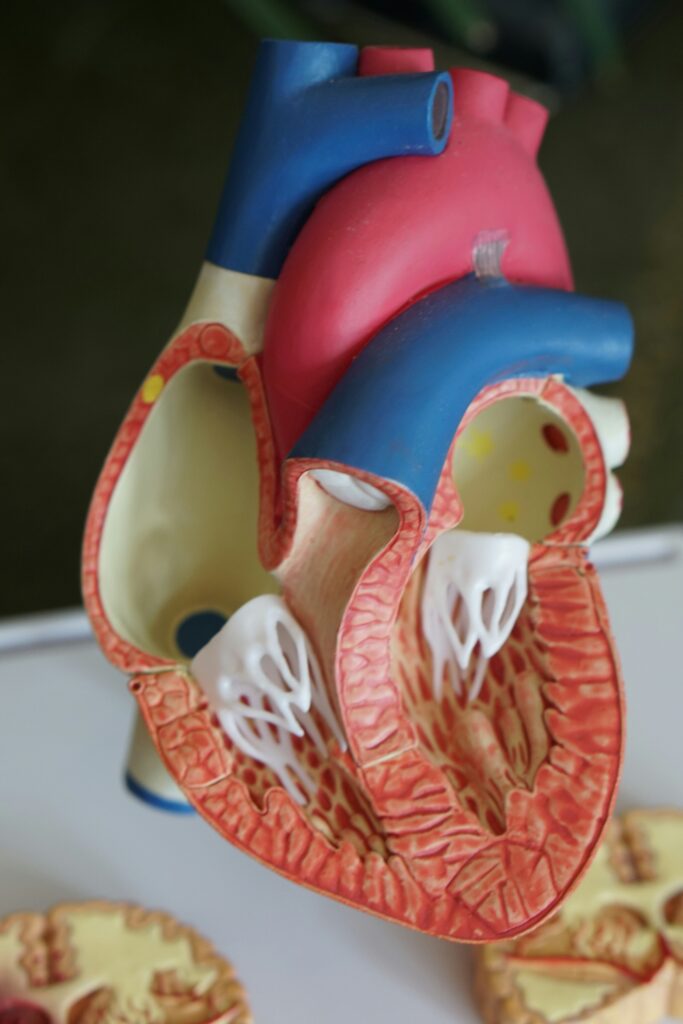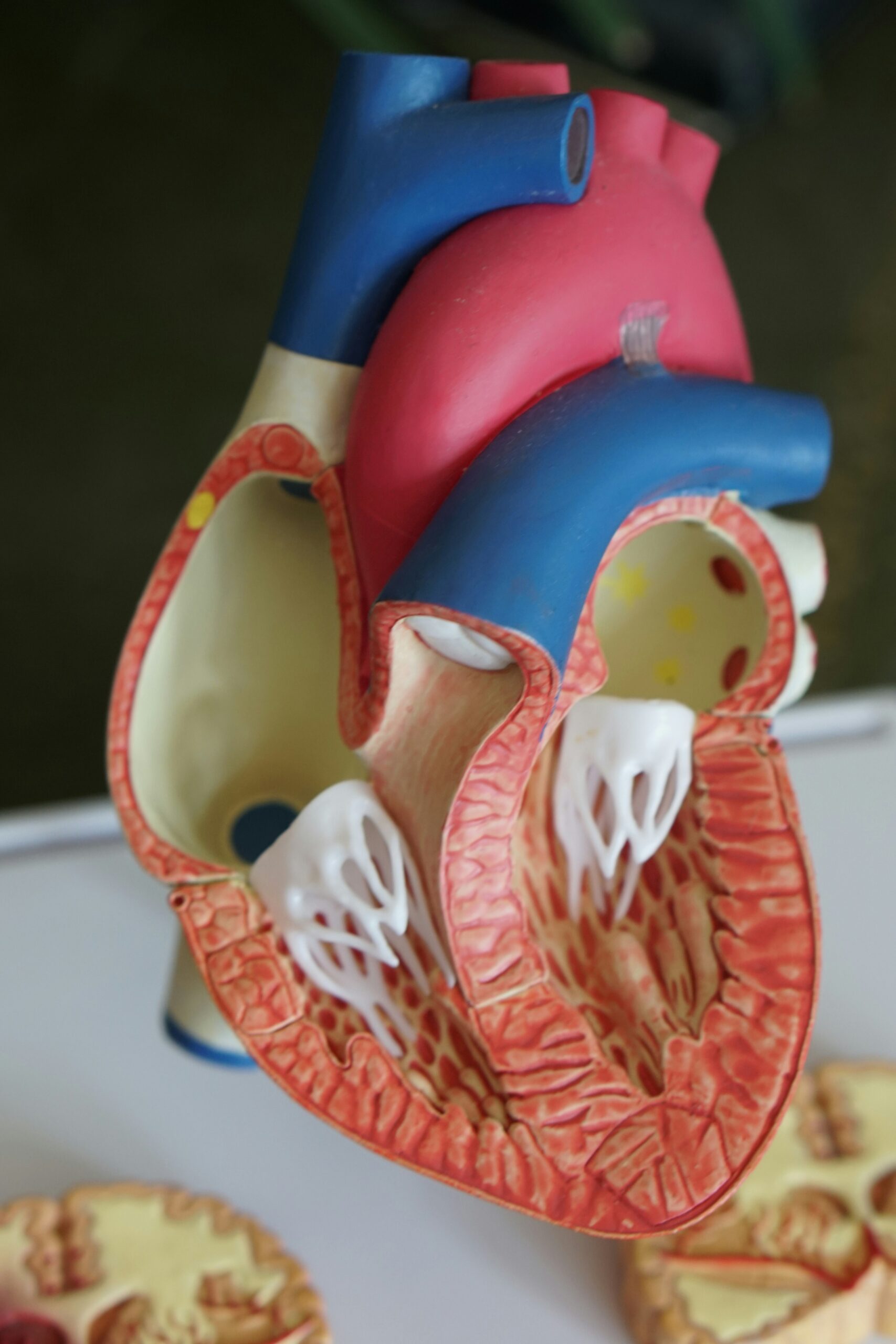
Every year, Heart Failure Awareness Week highlights an important yet often misunderstood condition affecting millions worldwide. Heart failure, a condition where the heart cannot pump blood effectively, touches the lives of patients, families, and communities. This awareness week is dedicated to educating the public about heart failure, its risks, and how early intervention can save lives.
Did you know that approximately 6.2 million adults in the United States are currently living with heart failure? Globally, the number is even more staggering, with heart failure contributing to millions of hospitalizations and a significant economic burden. Despite its prevalence, many people remain unaware of the early warning signs and how to manage the condition effectively.
This blog post aims to shed light on heart failure by explaining what it is, recognizing its symptoms, and understanding its risk factors. Whether you want to prevent heart failure, support someone living with it, or simply learn more, Heart Failure Awareness Week is the perfect time to take action. Together, we can promote awareness, encourage prevention, and empower those affected by heart failure.
What Is Heart Failure?
Heart failure is a chronic condition that occurs when the heart is unable to pump blood efficiently enough to meet the body’s needs. This doesn’t mean that the heart has stopped working altogether, but rather that it’s struggling to perform its vital function of circulating oxygen-rich blood. Over time, this can lead to serious health complications and impact a person’s quality of life.
Types of Heart Failure
Heart failure is categorized based on which part of the heart is affected and how the condition manifests:
- Left-Sided Heart Failure
This is the most common type and occurs when the left ventricle, which pumps blood to the rest of the body, weakens. It can lead to fluid buildup in the lungs, causing symptoms like shortness of breath and fatigue.- Systolic Heart Failure: The heart muscle loses its ability to contract effectively.
- Diastolic Heart Failure: The heart muscle becomes stiff and cannot relax to fill properly.
- Right-Sided Heart Failure
This occurs when the right ventricle, responsible for pumping blood to the lungs, struggles to function. It often leads to fluid retention, causing swelling in the legs, ankles, and abdomen. - Congestive Heart Failure (CHF)
A progressive condition where fluid builds up in the body’s tissues due to poor blood circulation. This term is often used interchangeably with chronic heart failure.
The Prevalence of Heart Failure
Heart failure is a widespread health concern, affecting an estimated 64 million people worldwide. In the United States alone, it is responsible for more than 1 million hospitalizations annually and contributes to significant healthcare costs. Despite its prevalence, many people are unaware of the condition until it reaches advanced stages, making awareness and early detection crucial.
Heart failure is not a death sentence. With proper management, individuals can live fulfilling lives. By understanding its types and impacts, we can better support those affected and work toward preventing the condition in the future.
Signs and Symptoms
Heart failure symptoms can develop gradually or appear suddenly, depending on the underlying cause and severity of the condition. Recognizing these signs early is essential for timely treatment, which can slow disease progression and improve quality of life.
Common Symptoms of Heart Failure
- Shortness of Breath (Dyspnea)
Difficulty breathing, particularly during physical activity or when lying down, is a hallmark symptom. It occurs due to fluid buildup in the lungs. - Fatigue and Weakness
Reduced blood flow to the muscles can lead to persistent tiredness and a lack of energy, even after minimal effort. - Swelling (Edema)
Fluid retention in the legs, ankles, feet, or abdomen is common, especially in right-sided heart failure. - Rapid or Irregular Heartbeat
The heart may beat faster or irregularly as it struggles to compensate for its reduced efficiency. - Persistent Cough or Wheezing
A dry, hacking cough or wheezing that worsens at night may indicate fluid in the lungs. - Sudden Weight Gain
Rapid weight gain over a few days can signal fluid retention, a common complication of congestive heart failure. - Decreased Appetite or Nausea
A feeling of fullness or nausea is often caused by fluid buildup around the digestive organs. - Confusion or Difficulty Concentrating
Reduced blood flow to the brain can result in cognitive challenges, especially in older adults.
Heart failure symptoms can sometimes be mistaken for signs of aging or other less severe conditions. However, ignoring these symptoms can lead to delayed diagnosis and treatment, increasing the risk of complications. If you or someone you know experiences any of these signs, especially in combination, it’s important to seek medical attention promptly.
Early detection and intervention can significantly improve outcomes, offering patients a better chance to manage their condition and maintain a higher quality of life.
Causes and Risk Factors
Heart failure often develops as a result of other conditions that damage or weaken the heart. Understanding these causes and associated risk factors is essential for prevention and early detection.
Potential Causes of Heart Failure
- Coronary Artery Disease (CAD)
This common condition, caused by narrowed or blocked arteries, reduces blood flow to the heart and increases the risk of heart failure. - High Blood Pressure (Hypertension)
Over time, elevated blood pressure forces the heart to work harder, leading to thickened or weakened heart muscles. - Diabetes
High blood sugar levels can damage blood vessels and nerves, contributing to heart failure. - Heart Attack
A heart attack can cause permanent damage to the heart muscle, impairing its ability to pump blood effectively. - Valvular Heart Disease
Faulty or damaged heart valves can disrupt blood flow, putting extra strain on the heart. - Congenital Heart Defects
Structural abnormalities present at birth can lead to heart failure later in life if untreated. - Chronic Conditions
Conditions like sleep apnea, chronic kidney disease, or thyroid disorders can increase the risk of developing heart failure.
Key Risk Factors
- Lifestyle Habits
- Smoking: Damages blood vessels and reduces oxygen flow, increasing heart strain.
- Poor Diet: Diets high in saturated fats, sodium, and sugar contribute to heart disease and hypertension.
- Physical Inactivity: A sedentary lifestyle weakens the heart over time.
- Excessive Alcohol or Drug Use: These habits can lead to heart muscle damage (cardiomyopathy).
- Age
The risk of heart failure increases with age as the heart naturally becomes less efficient over time. - Family History
A family history of heart disease or heart failure can predispose individuals to the condition. - Obesity
Excess weight puts additional strain on the heart and is often associated with other risk factors like diabetes and hypertension. - Gender Differences
While men are more likely to develop heart failure at a younger age, women often experience the condition later in life with different symptoms.
While some risk factors, such as age and family history, are unavoidable, many are within our control. Adopting a heart-healthy lifestyle—by maintaining a balanced diet, exercising regularly, and managing conditions like high blood pressure or diabetes—can significantly reduce the risk of heart failure.
By understanding these causes and risks, individuals can take proactive steps to protect their heart health and improve their long-term well-being.

Diagnosis and Treatment
Diagnosing heart failure involves a comprehensive approach to confirm the condition, determine its severity, and identify its underlying causes. Once diagnosed, treatment focuses on managing symptoms, slowing disease progression, and improving quality of life.
How Is Heart Failure Diagnosed?
- Medical History and Physical Exam
- A healthcare provider will review your medical history, ask about symptoms, and perform a physical exam to check for signs of heart failure, such as swelling (edema), irregular heart rhythms, or fluid in the lungs.
- Imaging Tests
- Chest X-Ray: Helps detect fluid buildup in the lungs or an enlarged heart.
- Echocardiogram: A key test that uses ultrasound to evaluate the heart’s structure and function, including its pumping efficiency (ejection fraction).
- MRI or CT Scan: Provides detailed images of the heart to detect abnormalities or damage.
- Blood Tests
- BNP or NT-proBNP Levels: Measures levels of a hormone produced by the heart during stress, indicating heart failure.
- Electrolytes and Kidney Function Tests: Monitors overall health and the impact of heart failure on other organs.
- Electrocardiogram (ECG)
- Records the electrical activity of the heart to identify irregular heart rhythms or damage from a previous heart attack.
- Stress Tests and Cardiac Catheterization
- These tests evaluate how the heart performs under stress and assess blood flow in the coronary arteries.
Treatment Options for Heart Failure
- Medications
- ACE Inhibitors and ARBs: Help relax blood vessels, improving blood flow and reducing the heart’s workload.
- Beta-Blockers: Reduce heart rate and blood pressure, helping the heart pump more effectively.
- Diuretics: Commonly known as water pills, these help reduce fluid buildup in the body.
- Aldosterone Antagonists: Lower blood pressure and reduce the risk of complications.
- SGLT2 Inhibitors: A newer class of drugs shown to benefit heart failure patients, even those without diabetes.
- Lifestyle Changes
- Dietary Adjustments: A low-sodium diet helps reduce fluid retention, while a heart-healthy diet supports overall cardiovascular health.
- Exercise: Regular, moderate physical activity can improve heart function and stamina.
- Weight Management: Maintaining a healthy weight reduces strain on the heart.
- Smoking Cessation and Alcohol Moderation: Eliminating smoking and limiting alcohol intake are critical steps for managing heart failure.
- Surgical Interventions
- Implantable Devices: Devices like pacemakers or implantable cardioverter defibrillators (ICDs) help regulate heart rhythms.
- Coronary Artery Bypass Grafting (CABG): A surgical option for patients with heart failure caused by blocked arteries.
- Heart Transplant: In severe cases, a heart transplant may be the best option when other treatments are no longer effective.
Heart failure management requires a personalized treatment plan that combines medical care, lifestyle changes, and ongoing monitoring. With early diagnosis and a proactive approach, many individuals with heart failure can lead fulfilling lives and effectively manage their condition.
Living with Heart Failure
Managing heart failure requires a comprehensive approach that goes beyond medical treatments. By adopting healthy habits and addressing emotional well-being, individuals with heart failure can lead fulfilling lives. Here are practical tips to help patients and their caregivers navigate the challenges of this condition.
Practical Tips for Managing Heart Failure
- Follow a Heart-Healthy Diet
- Limit Sodium: High sodium intake contributes to fluid retention and increased strain on the heart. Aim for a diet with no more than 1,500–2,000 mg of sodium per day.
- Focus on Nutrient-Rich Foods: Include plenty of fruits, vegetables, whole grains, lean proteins, and healthy fats to support overall cardiovascular health.
- Stay Hydrated: Follow your doctor’s guidance on fluid intake, as some patients may need to restrict fluids.
- Stay Physically Active
- Exercise Regularly: Engage in moderate activities like walking, swimming, or yoga to improve stamina and heart function. Always consult your healthcare provider before starting a new exercise routine.
- Incorporate Rest: Balance activity with adequate rest to avoid overexertion.
- Take Medications as Prescribed
- Adherence Is Key: Consistently take medications as directed, even if you feel better. Missing doses can lead to worsening symptoms.
- Use Reminders: Pill organizers, alarms, or apps can help you stay on track with your medications.
- Monitor Your Health Daily
- Track Symptoms: Keep a journal of your symptoms, weight, and any changes in your condition to share with your doctor.
- Recognize Warning Signs: Seek medical attention if you notice symptoms like sudden weight gain, increased swelling, or difficulty breathing.
Emotional and Mental Health Support
- Address Emotional Challenges
Living with heart failure can lead to feelings of anxiety, depression, or frustration. It’s essential to acknowledge these emotions and seek help when needed. - Build a Support Network
- Connect with Loved Ones: Share your journey with family and friends who can offer encouragement and practical assistance.
- Join Support Groups: Engage with others who understand your experiences through local or online heart failure communities.
- Practice Stress Management
- Mindfulness and Relaxation: Activities like meditation, deep breathing, or gentle stretching can reduce stress and improve mental clarity.
- Counseling or Therapy: Talking to a mental health professional can provide strategies for coping with the emotional aspects of heart failure.
- Caregiver Support
- Caregivers also face unique challenges and should prioritize their own well-being. Seeking resources, joining caregiver support groups, and setting boundaries can help maintain balance.
Living with heart failure is a journey that requires dedication and teamwork between patients, caregivers, and healthcare providers. By making small, consistent changes to daily habits and addressing emotional well-being, individuals with heart failure can improve their quality of life and maintain a sense of control over their health.
Raising Awareness About Heart Failure
Heart Failure Awareness Week is an opportunity to educate the public, reduce stigma, and advocate for improved care and resources for those living with heart failure. Awareness campaigns play a crucial role in fostering understanding, encouraging early detection, and supporting ongoing research.
Why Awareness Matters
- Early Detection Saves Lives
Many people remain unaware of the early symptoms of heart failure, leading to delayed diagnoses. By spreading knowledge about warning signs, we can empower individuals to seek medical care sooner, improving outcomes and quality of life. - Advancing Research and Treatment
Public awareness generates funding and advocacy for research into advanced treatments, innovative therapies, and prevention strategies. - Reducing Stigma
Misconceptions about heart failure can prevent individuals from seeking help. Raising awareness creates a more empathetic and informed society, encouraging open dialogue and better support for those affected.
How to Get Involved
- Participate in Awareness Events
Join local or virtual events, such as heart walks, webinars, or fundraisers, to show your support and learn more about heart failure. - Share Stories and Information
Use your voice to spread awareness on social media, in community groups, or among friends and family. Sharing personal experiences or informative articles can inspire others to take action. - Donate to Heart Health Organizations
Contributions to organizations like the American Heart Association (AHA) or local cardiovascular research initiatives support programs that improve care and advance scientific breakthroughs. - Advocate for Policy Changes
Reach out to policymakers to emphasize the importance of funding for cardiovascular research and heart health education programs. - Wear Red
As a symbol of heart health awareness, wearing red during Heart Failure Awareness Week can spark conversations and show solidarity with those affected.
Every small effort adds up. Whether you’re sharing a post online, attending a fundraiser, or encouraging a loved one to recognize the signs of heart failure, you’re contributing to a greater movement. Together, we can foster a community of care, support, and progress in the fight against heart failure.

Resources and Support
Living with heart failure can be challenging, but access to the right resources and support can make all the difference. Whether you’re a patient, caregiver, or someone seeking to learn more, these organizations, helplines, and online communities provide valuable guidance, tools, and a sense of connection.
Organizations and Foundations
- American Heart Association (AHA)
The AHA offers comprehensive resources on heart failure, including information on symptoms, treatments, and lifestyle changes. They also host support programs and awareness campaigns.
Visit the AHA Website - Heart Failure Society of America (HFSA)
HFSA provides educational materials for patients and caregivers, as well as resources for finding clinical trials and managing heart failure.
Visit the HFSA Website - Mended Hearts
This organization connects patients and caregivers through peer support groups and educational programs.
Visit Mended Hearts - National Heart, Lung, and Blood Institute (NHLBI)
NHLBI offers detailed information on heart failure, including research updates and prevention tips.
Visit the NHLBI Website
Helplines and Support Services
- American Heart Association Helpline
Speak with experts who can answer questions about heart failure and provide guidance.- Phone: 1-800-AHA-USA1 (1-800-242-8721)
- National Suicide Prevention Lifeline
For those experiencing emotional distress or struggling to cope with a diagnosis, this helpline provides confidential support.- Phone: 988
- Website: Suicide Prevention Lifeline
- Local Hospitals and Clinics
Many healthcare providers offer heart failure management programs and support groups. Contact your local hospital for information.
Online Communities
- Heart Failure Support Groups on Facebook
Platforms like Facebook host active communities where patients and caregivers can share experiences and advice. Look for groups such as “Heart Failure Survivors” or “Living with Congestive Heart Failure.” - AHA Support Network
This online platform connects individuals affected by heart conditions, providing a space to share stories and find encouragement.
Join the AHA Support Network - PatientsLikeMe
A patient-centered platform where individuals with heart failure can track their health, connect with others, and share insights.
Explore PatientsLikeMe
Accessing these resources can help patients and caregivers feel empowered, informed, and less isolated. From educational materials to emotional support, there’s a wealth of assistance available for those navigating heart failure.
If you or someone you love is managing heart failure, don’t hesitate to reach out to these organizations and communities for guidance and support.
Heart Failure Awareness Week serves as a powerful reminder of the importance of education, prevention, and support in the fight against this life-altering condition. Throughout this post, we’ve explored what heart failure is, its symptoms, causes, and risk factors, as well as how it is diagnosed and treated. We’ve also shared practical tips for managing heart failure and highlighted the resources and support available to patients and caregivers.
Raising awareness about heart failure can save lives by encouraging early detection, fostering better understanding, and driving advancements in treatment and research. Whether you’re directly affected by heart failure or want to support someone who is, small actions can make a big difference.
Knowledge is power, and staying informed is one of the best ways to make an impact. Sign up for our newsletter today to receive valuable insights, resources, and updates on heart health. Together, we can promote awareness, support those living with heart failure, and inspire positive change.

Leave a Reply
You must be logged in to post a comment.